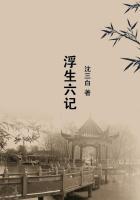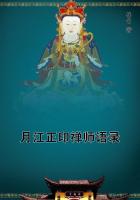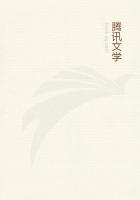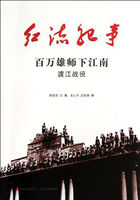It can be nothing less than a power which elevates man above himself (as a part of the world of sense), a power which connects him with an order of things that only the understanding can conceive, with a world which at the same time commands the whole sensible world, and with it the empirically determinable existence of man in time, as well as the sum total of all ends (which totality alone suits such unconditional practical laws as the moral).This power is nothing but personality, that is, freedom and independence on the mechanism of nature, yet, regarded also as a faculty of a being which is subject to special laws, namely, pure practical laws given by its own reason;so that the person as belonging to the sensible world is subject to his own personality as belonging to the intelligible [supersensible]
world.It is then not to be wondered at that man, as belonging to both worlds, must regard his own nature in reference to its second and highest characteristic only with reverence, and its laws with the highest respect.
On this origin are founded many expressions which designate the worth of objects according to moral ideas.The moral law is holy (inviolable).Man is indeed unholy enough, but he must regard humanity in his own person as holy.In all creation every thing one chooses and over which one has any power, may be used merely as means; man alone, and with him every rational creature, is an end in himself.
By virtue of the autonomy of his freedom he is the subject of the moral law, which is holy.just for this reason every will, even every person's own individual will, in relation to itself, is restricted to the condition of agreement with the autonomy of the rational being, that is to say, that it is not to be subject to any purpose which cannot accord with a law which might arise from the will of the passive subject himself; the latter is, therefore, never to be employed merely as means, but as itself also, concurrently, an end.
We justly attribute this condition even to the Divine will, with regard to the rational beings in the world, which are His creatures, since it rests on their personality, by which alone they are ends in themselves.
This respect-inspiring idea of personality which sets before our eyes the sublimity of our nature (in its higher aspect), while at the same time it shows us the want of accord of our conduct with it and thereby strikes down self-conceit, is even natural to the commonest reason and easily observed.Has not every even moderately honourable man sometimes found that, where by an otherwise inoffensive lie he might either have withdrawn himself from an unpleasant business, or even have procured some advantages for a loved and well-deserving friend, he has avoided it solely lest he should despise himself secretly in his own eyes? When an upright man is in the greatest distress, which he might have avoided if he could only have disregarded duty, is he not sustained by the consciousness that he has maintained humanity in its proper dignity in his own person and honoured it, that he has no reason to be ashamed of himself in his own sight, or to dread the inward glance of self-examination? This consolation is not happiness, it is not even the smallest part of it, for no one would wish to have occasion for it, or would, perhaps, even desire a life in such circumstances.But he lives, and he cannot endure that he should be in his own eyes unworthy of life.
This inward peace is therefore merely negative as regards what can make life pleasant; it is, in fact, only the escaping the danger of sinking in personal worth, after everything else that is valuable has been lost.It is the effect of a respect for something quite different from life, something in comparison and contrast with which life with all its enjoyment has no value.He still lives only because it is his duty, not because he finds anything pleasant in life.
Such is the nature of the true motive of pure practical reason; it is no other than the pure moral law itself, inasmuch as it makes us conscious of the sublimity of our own supersensible existence and subjectively produces respect for their higher nature in men who are also conscious of their sensible existence and of the consequent dependence of their pathologically very susceptible nature.Now with this motive may be combined so many charms and satisfactions of life that even on this account alone the most prudent choice of a rational Epicurean reflecting on the greatest advantage of life would declare itself on the side of moral conduct, and it may even be advisable to join this prospect of a cheerful enjoyment of life with that supreme motive which is already sufficient of itself; but only as a counterpoise to the attractions which vice does not fail to exhibit on the opposite side, and not so as, even in the smallest degree, to place in this the proper moving power when duty is in question.For that would be just the same as to wish to taint the purity of the moral disposition in its source.The majesty of duty has nothing to do with enjoyment of life; it has its special law and its special tribunal, and though the two should be never so well shaken together to be given well mixed, like medicine, to the sick soul, yet they will soon separate of themselves; and if they do not, the former will not act; and although physical life might gain somewhat in force, the moral life would fade away irrecoverably.
Critical Examination of the Analytic of Pure Practical Reason.
By the critical examination of a science, or of a portion of it, which constitutes a system by itself, I understand the inquiry and proof why it must have this and no other systematic form, when we compare it with another system which is based on a similar faculty of knowledge.Now practical and speculative reason are based on the same faculty, so far as both are pure reason.Therefore the difference in their systematic form must be determined by the comparison of both, and the ground of this must be assigned.















